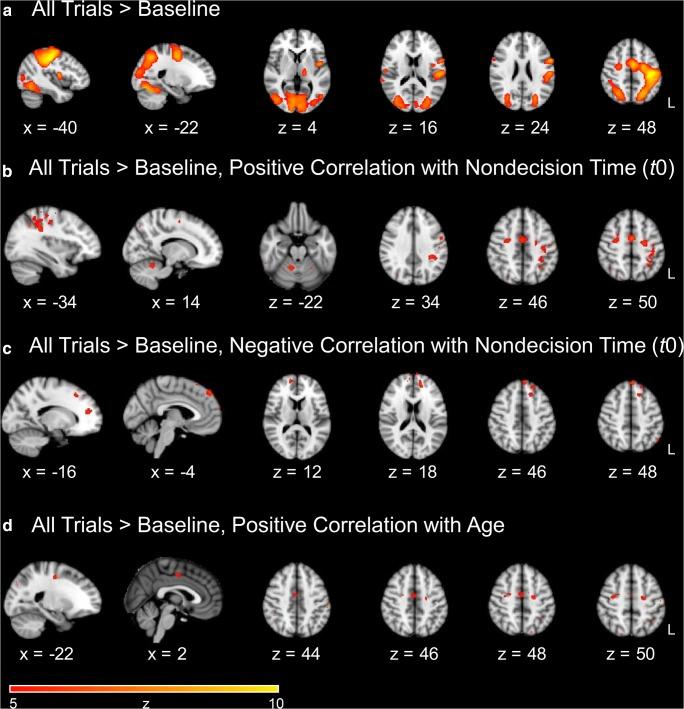
Previous research suggests that feature search performance is relatively resistant to age-related decline. However, little is known regarding the neural mechanisms underlying the age-related constancy of feature search. In this experiment, we used a diffusion decision model of reaction time (RT), and event-related functional magnetic resonance imaging (fMRI) to investigate age-related differences in response-level processing during visual feature search. Participants were 80 healthy, right-handed, community-dwelling individuals, 19-79 years of age. Analyses of search performance indicated that targets accompanied by response-incompatible distractors were associated with a significant increase in the nondecision-time (t0) model parameter, possibly reflecting the additional time required for response execution. Nondecision time increased significantly with increasing age, but no age-related effects were evident in drift rate, cautiousness (boundary separation, a), or in the specific effects of response compatibility. Nondecision time was also associated with a pattern of activation and deactivation in frontoparietal regions. The relation of age to nondecision time was indirect, mediated by this pattern of frontoparietal activation and deactivation. Response-compatible and -incompatible trials were associated with specific patterns of activation in the medial and superior parietal cortex, and frontal eye field, but these activation effects did not mediate the relation between age and search performance. These findings suggest that, in the context of a highly efficient feature search task, the age-related influence of frontoparietal activation is operative at a relatively general level, which is common to the task conditions, rather than at the response level specifically.
Citation: Madden, D. J., Siciliano, R. E., Tallman, C. W., Monge, Z. A., Voss, A., & Cohen, J. R. (2020). Response-level processing during visual feature search: Effects of frontoparietal activation and adult age. Attention, perception & psychophysics, 82(1), 330–349. https://doi.org/10.3758/s13414-019-01823-3
